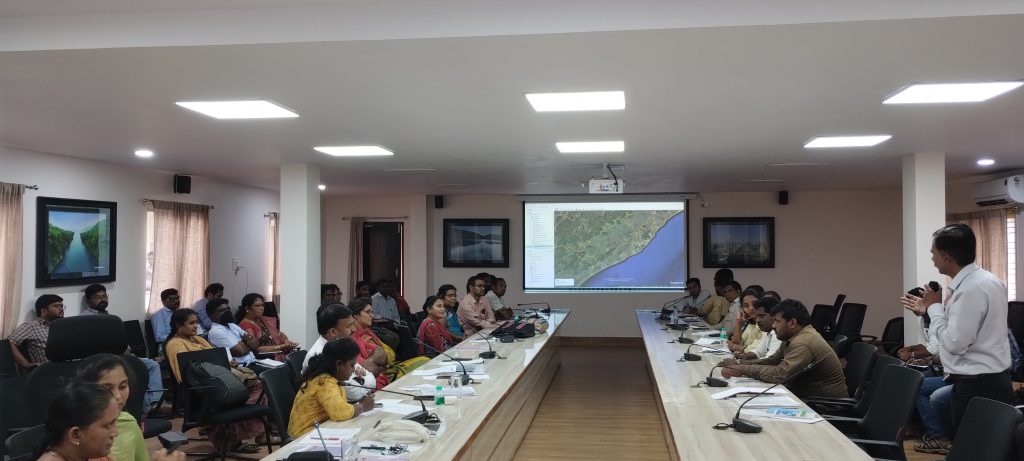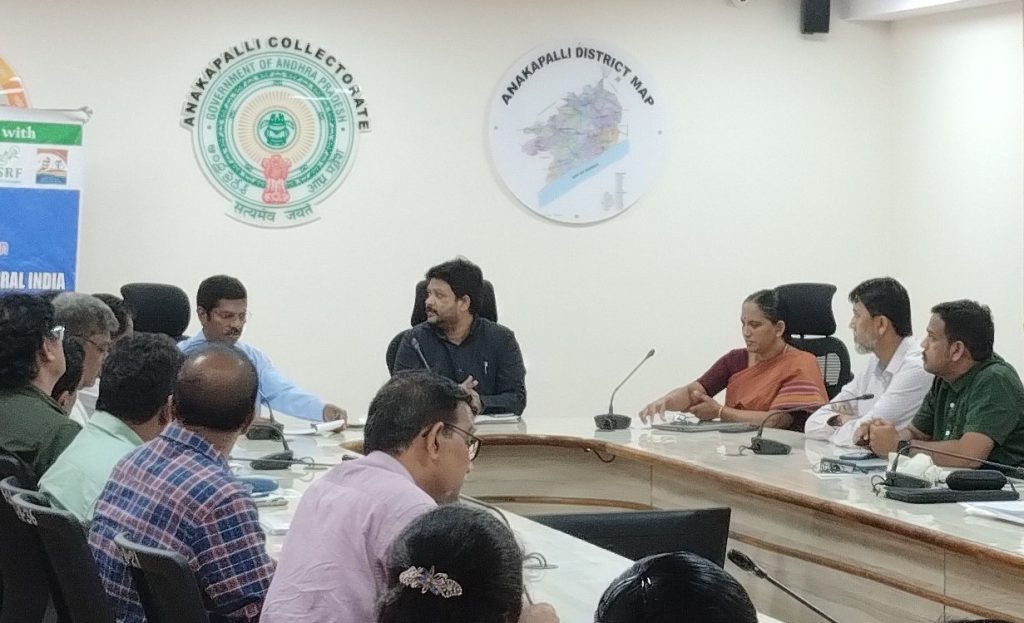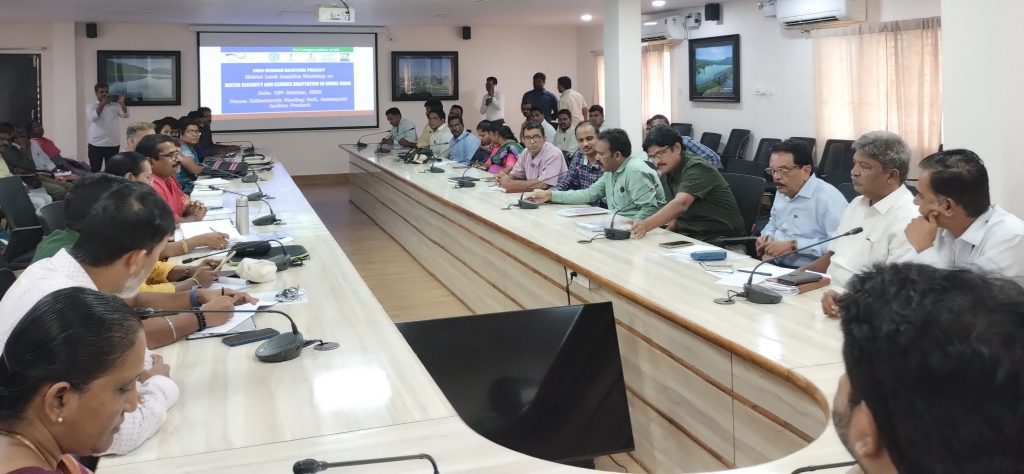M S Swaminathan Research Foundation is a technical partner in the Water Security and Climate Adaptation in Rural India (WASCA) project supported by GIZ India, New Delhi, being implemented in Andhra Pradesh, Telangana, Tamil Nadu, Kerala and Andaman and Nicobar Islands. A district-level inception workshop was organised in one of the pilot districts – Anakapalli in Andhra Pradesh. Mr M Ashok Kumar, Joint Commissioner of Horticulture, EGS, Government of Andhra Pradesh inaugurated the event.
Sri. Pattanshetti Ravi Subhash, IAS, Collector & District Magistrate of Anakapalli, addressed the participants on the need to strengthen the application of cutting-edge technologies to improve natural resources. He urged the project team to work intensively to enhance groundwater levels in the next five years, while outlining expectations for GIS planning in the district over the next five years as well as ways to improve groundwater storage. Extending support to the WASCA II project, he proposed that activities planned be integrated with labour budgets under MGNREGA.


Experts from GIZ, New Delhi, presented the district-level GIS plan that identified actions for the wasteland management, water harvesting, storage and drainage line works. Using a systematic approach, the project team planned for 46,427 activities across the district. WASCA team explained the process of shortlisting these activities at the Gram Panchayat level through field verification and requested departmental input and cooperation.
Over 100 officials from the departments of Social Forestry, Irrigation, Groundwater, Animal husbandry, Agriculture, Horticulture, Fishery and Planning attended the event and discussed the potential convergence of implementing comprehensive water resources management at the GP level.
Deliberations were on piloting climate adaptation measures considering the climate change issues and District functionaries underlined that climate-resilient works need to focus on multiple outcomes including employment creation, asset development, women’s empowerment and water conservation. The works can also be mapped on how they contribute to global targets such as Sustainable Development Goals, Nationally Determined Contributions, Land Degradation Neutrality targets, etc.
As a way forward, it was decided to develop a holistic approach in the planning of activities, preparing detailed project reports targeting specific issues such as forest cover, community lands, croplands, water bodies and waterlogged areas can be developed for progressive treatment, improve the implementation methodology to prioritise activities on natural resource management through a suitable scientific approach and impact monitoring using thematic maps.


